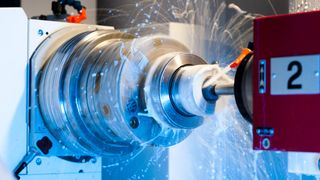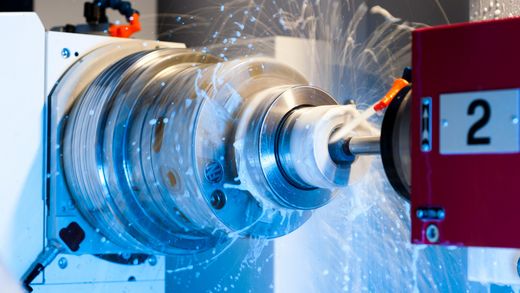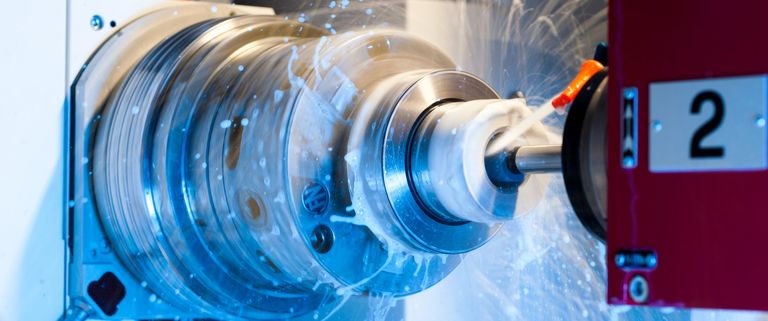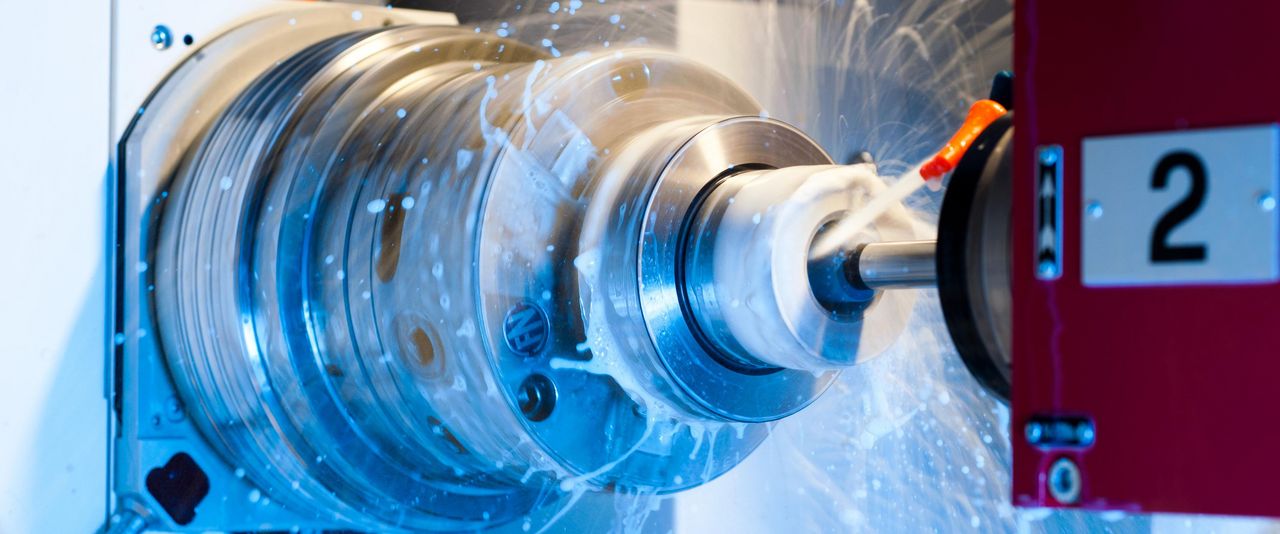The use of cooling lubricant for grinding
Coolants are an important factor in machine efficiency and product quality. However, even under good conditions, only around 10% of the coolant used during grinding tends to reach the contact zone between the grinding wheel and the workpiece. We show you what to look out for when using coolants.
Lubrication and cooling when grinding on CNC machines are essential both for the service life of the grinding wheels and to ensure high product quality. But is your CNC machine's coolant system working efficiently?
Coolant Management and Operational Efficiency
As the individual grains of the grinding wheel remove material from the workpiece, heat is generated. At high temperatures, there is a risk that the parts will fall outside the intended specifications. Coolant provides a stable thermal system and flushes out chips generated during grinding. In other words: coolant is a liquid tool to control temperature and remove chips.
Coolant is like any other tool in your grinding process: Its quality affects the quality of the entire system. A clean, high-quality coolant is therefore important.
- It extends the service life of the dressing tool and grinding wheel.
- It ensures consistent processes to meet tight manufacturing tolerances.
- It ensures a better surface on the parts and reduces scrap.
- It reduces cycle times and downtime, avoiding costly time spent on adjusting parameters.
In short, clean coolant and effective placement benefit both your grinding machine and the parts you produce, resulting in more efficient manufacturing and higher production rates.
Best Practices for Coolant Placement
It is important that you select the right coolant for your machine. Oil provides good lubrication and enables higher chip volumes with a good surface finish, while water-soluble liquids dissipate heat better from the parts. When grinding carbide tools, oils tend to be exclusively used because it lubricates well and leaches less cobalt. In addition, oil is better suited for use with diamond grinding wheels. Some machines require a specific type of coolant, so check with your manufacturer.
Be sure to look for signs that your machine needs a new coolant. This is usually the case even with good care after around 10 to 15 years. Signs include:
- increased viscosity
- High cobalt concentration
- Foul odors
- And/or corrosion (contamination of the oil by water bacteria).
The grinding fluid must be routed through the appropriate coolant line to provide the required pressure and precision. UNITED GRINDING machines work with three different types of lines:
- Modular plastic
Best suited for low pressure. It is extremely flexible, making it a good choice for quick changes.
- Rotatable nozzles
For higher pressure levels. They are used similarly to modular plastic pipes but can be fastened with threads and offer more rigidity while remaining flexible.
- Stainless steel tube
If the pressure is very high. It provides the repeatability required by wheel changers or standard wheel packages where the coolant must hit precisely the same points of contact every time.
Don't forget: You should identify the point of contact and direct the correct amount of fluid to it at the correct pressure. The contact point is exactly the point where the grinding wheel and workpiece come into contact and the highest temperatures are generated. Regulating these temperatures is crucial, which is why precise nozzle alignment is essential. If you have chosen a machine from UNITED GRINDING, corresponding software is available. The software displays the exact contact point so you can align your coolant nozzles with exceptional precision.
By following our tips, you can overcome the physical challenges of cooling a grinding machine that operates at high cutting speeds. Turbulence on the periphery of a grinding wheel, which rotates at high speeds, naturally introduces air and creates a mist. In conjunction with misaligned nozzles, the coolant supply is at best no more than a drop in the bucket.
Want to Learn More?
We would be happy to advise you. Contact us!









